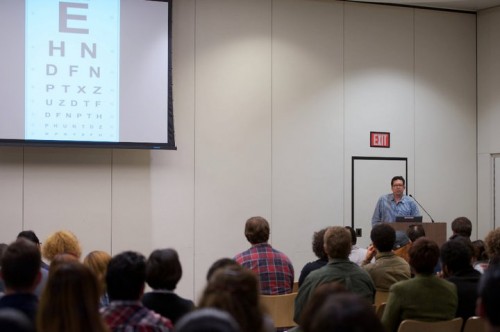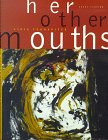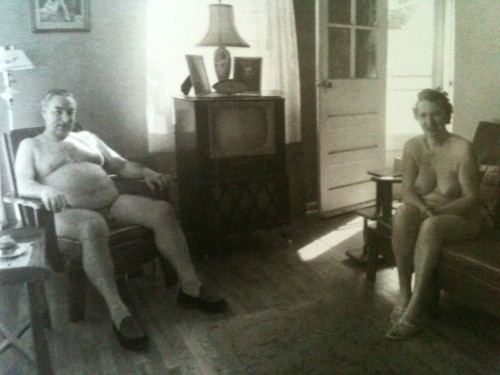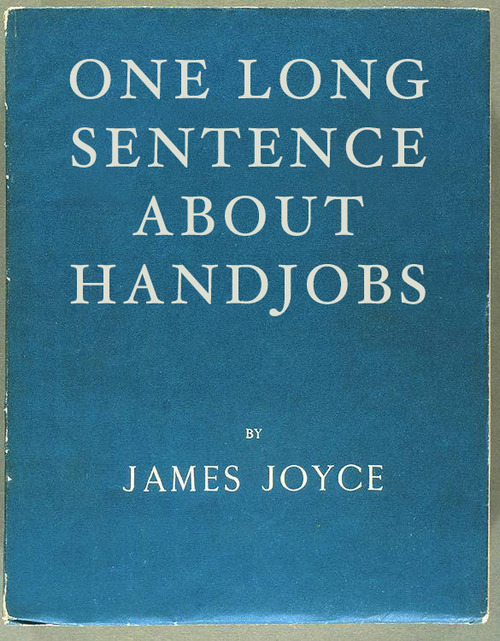Do the click to help Vouched Books & Big Car do good things for small press literature and community art in Indianaoplis, IN
 I just got this email from Chris Newgent of Vouched Books in Indianapolis, IN, which I think is a generous, lovely project, so I am re-posting this here.
I just got this email from Chris Newgent of Vouched Books in Indianapolis, IN, which I think is a generous, lovely project, so I am re-posting this here.
“Big Car Arts Collective is in the running for a $25,000 Pepsi Refresh Grant to support our new community space here in Indy called Service Center for Contemporary Culture + Community! The top 15 projects get funded. We are in the final push at 9th place with 10 days to go, which means if we can just hold on we get the grant!
At this new space, we plan to host events (the next Vouched Presents reading will be here), maintain a community garden, hold art and writing workshops (e.g. we plan to have a Dzanc Day event here next year), and have a lending library (you can bet I plan to stock that puppy with small press literature galore). On top of that, they’re devoting a shelf to Vouched Books so people visiting the community space have the opportunity to buy my books whenever the space is open. The whole endeavor is to kickstart a revitalization of a neighborhood in Indy that is in desperate need for new life. READ MORE >
What is Experimental Literature? {Five Questions: Sesshu Foster}

photo by Gary Kuwahara
Sesshu Foster has taught composition and literature in East Los Angeles for 25 years. He’s also taught writing at the University of Iowa, the California Institute for the Arts, the Jack Kerouac School of Disembodied Poetics and the University of California, Santa Cruz. His work has been published in The Oxford Anthology of Modern American Poetry, Language for a New Century: Poetry from the Middle East, Asia and Beyond, and the on-line magazine Joyland. He is currently collaborating with artist Arturo Romo and other writers on the ELA Guide. His most recent books are the novel Atomik Aztex (winner of the 2006 Believer Magazine Book Award) and the hybrid text World Ball Notebook (winner of a 2010 American Book Award).
Some Notes on Kate Bernheimer’s Complete Tales Trilogy
 Kate Bernheimer’s Complete Tales of the Gold sisters is a a trilogy of novels published over a ten year period. It is also part of a broader project, a life’s work, that includes not only the practice of reviving and revivifying the fairy tale, but also the tasks of developing a contemporary theory of the fairy tale, of identifying the ongoing subterranean influence of the fairy tale upon the work of writers not ordinarily associated with the fairy tale, and of championing and legitimizing and de-ghettoizing the fairy tale as a literary form.
Kate Bernheimer’s Complete Tales of the Gold sisters is a a trilogy of novels published over a ten year period. It is also part of a broader project, a life’s work, that includes not only the practice of reviving and revivifying the fairy tale, but also the tasks of developing a contemporary theory of the fairy tale, of identifying the ongoing subterranean influence of the fairy tale upon the work of writers not ordinarily associated with the fairy tale, and of championing and legitimizing and de-ghettoizing the fairy tale as a literary form.
Bernheimer is probably better known in her critical and editorial roles than as a writer. Her Penguin-published anthology My Mother She Killed Me, My Father He Ate Me: Forty New Fairy Tales (co-edited with Carmen Gimenez-Smith), which includes fairy tales by the likes of Kelly Link, John Updike, Neil Gaiman, Lily Hoang, Michael Cunningham, Kevin Brockmeier, Joy Williams, and Ludmilla Petrushevskaya, is the most prominent of these efforts. In her introduction, Bernheimer invokes a line of Nabokov’s: “All great novels are fairy tales.” Then she makes a broader claim: “all great narratives are fairy tales . . . READ MORE >
Fan Mail #2: Lidia Yuknavitch
Dear Lidia Yuknavitch,
It’s your birthday, and I am grateful you exist.
Even if it wasn’t your birthday, I’d be grateful.
 Lidia, the first book of yours I read was in 2004, Her Other Mouths. I read it for a class with Steve Tomasula. I read it and thought: fuck, writing really can do this. Mind you: I’d read Kathy Acker. I’d read James Joyce. I’d read Raymond Federman. I’d read Samuel Beckett and Virginia Woolf and Gertrude Stein and David Foster Wallace and Anne Carson. I’d read a whole bunch of people, but it was your book that told me that I could write what I wanted to write, how I wanted to write it. Your book was brazen and unapologetic. Most of the other books I was reading were cowering and pretty, like princesses rather than heroines.
Lidia, the first book of yours I read was in 2004, Her Other Mouths. I read it for a class with Steve Tomasula. I read it and thought: fuck, writing really can do this. Mind you: I’d read Kathy Acker. I’d read James Joyce. I’d read Raymond Federman. I’d read Samuel Beckett and Virginia Woolf and Gertrude Stein and David Foster Wallace and Anne Carson. I’d read a whole bunch of people, but it was your book that told me that I could write what I wanted to write, how I wanted to write it. Your book was brazen and unapologetic. Most of the other books I was reading were cowering and pretty, like princesses rather than heroines.
Your book was a heroine.
A Few Notes on The Necropastoral by Joyelle McSweeney
 The Necropastoral is a chapbook by Joyelle McSweeney. It proceeds in five parts. First, “Necropastoral, or, Normal Love,” an essay that sets out McSweeney’s idea of the Necropastoral by examining Jack Smith’s film Normal Love. Second, a series of poems, all titled “King Prion,” which may be read as individual poems, as a cumulative poem, or as parts of a longer poem which isn’t present in its entirety. Third, “Arcadia, or, Anachronism: A Necropastoral Effigy,” an essay or possibly a story in the form of a list which is also in the form of an effigy. Fourth, “Infernal Tributaries of the Necropastoral,” which is an acknowledgements section that we might also read as a deletion of the boundaries of the chapbook. Fifth, ten blank white pages. There are also pages between sections illustrated by black-and-white collage.
The Necropastoral is a chapbook by Joyelle McSweeney. It proceeds in five parts. First, “Necropastoral, or, Normal Love,” an essay that sets out McSweeney’s idea of the Necropastoral by examining Jack Smith’s film Normal Love. Second, a series of poems, all titled “King Prion,” which may be read as individual poems, as a cumulative poem, or as parts of a longer poem which isn’t present in its entirety. Third, “Arcadia, or, Anachronism: A Necropastoral Effigy,” an essay or possibly a story in the form of a list which is also in the form of an effigy. Fourth, “Infernal Tributaries of the Necropastoral,” which is an acknowledgements section that we might also read as a deletion of the boundaries of the chapbook. Fifth, ten blank white pages. There are also pages between sections illustrated by black-and-white collage.
The task of the first paragraph of these notes was to describe the contents of the chapbook, but already the reviewer has had some trouble, because questions of genre and form and the place of each section have been blurred in a manner that requires the reader to rethink each how each element works and what each element is.
For starters: The chapbook form. What is a chapbook? READ MORE >
white elephants and vibrators and teeth into necks–books
For his birthday, I gave my father The Pale King. I thought he would glow because he has and always has read daily and he spent his entire life as an IRS accountant and who writes IRS books? He blarred the book. He said, “Sean, this book has no fucking paragraphs. It is chugged full of shit. I’m not reading it.” I said something like, “Uh, books can be good without paragraphs…” Anyway, fuck it. I can’t comment that book, have not read it (might). Can we talk about books as presents? They are sort of awkward. They are the giver and the given. The dancer and the dance. Yes? Like I know right now at least 20 poets who were given The Top 500 Poems (this book is a fucking perpetual barbed wire necklace of albatross dung to poets; I know poets who have 7 copies, like aunt, aunt, mom, bewildered boyfriend, aunt, dog-walker, step-mom; I know people who have like a side Ebay business off this one book), just because their friends/relatives were baffled about 1.) What the fuck is a poet? 2.) What would you give such a person?
I guess my point is can we talk books as gifts? Ones you gave that worked versus backfired? Stories? A guy, a girl, an intern (Leaves of Ass, cough, Grass, anyone?) Ones you have received? Drop us some horror tales, I know you have them. Oh, you’re a “writer,” here’s your 14th “arty” notebook. Moleskin? The bible? Top 500 poems? To sum this up, and to add a structural detail [writer/readers, this is called the loop–you end on a beginning anecdote] that no one really cares about (sorry), I just today sent my dad a portable, collapsible fishing rod (you can take it anywhere!) for Sunday, Father’s Day. He’s going to open it. He’s going to grunt. He’s going to hate it.
What is Experimental Literature? {Five Questions: Eileen Myles}
Eileen Myles was born in Boston in 1949, attended catholic schools in Arlington, Mass. and graduated from UMass (Boston) in 1971. She came to New York in 1974 to be a poet. She’s the author of eleven books of poetry, fiction, and nonfiction, the most recent of which is Inferno: A Poet’s Novel (O/R Books).
J. Nicholas Geist at Killscreen gives us a really gorgeous example of a text coming alive electronically.



